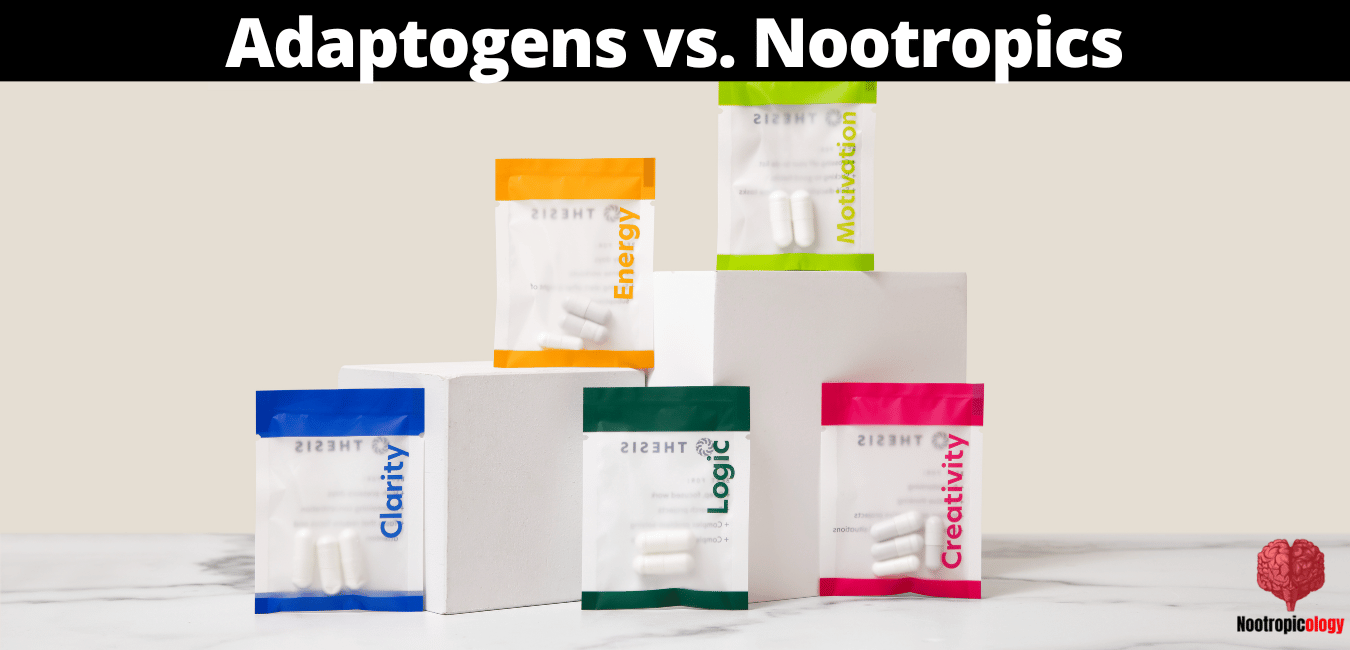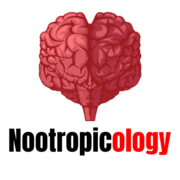Mixing Adaptogens and Nootropics for Enhanced Cognitive and Physical Well-being
Adaptogens, derived from herbal substances, claim to help the body combat stress, while nootropics aim to bolster cognitive function. However, their combined use is a new and relatively uncharted territory.
This intersection holds the potential for amplified benefits, including enhanced mental clarity and resilience, yet it also carries the risk of unforeseen interactions and side effects.
This article will delve into the definitions, uses, and examples of adaptogens and nootropics, scrutinize existing research on their combination, and explore the potential benefits and risks involved.
The aim is to provide a comprehensive guide for individuals and healthcare professionals to make informed decisions regarding the integration of adaptogens and nootropics into a health and wellness regimen.
The emphasis throughout remains on the critical importance of consulting healthcare experts to ensure the safe and effective use of these substances.
What Are Adaptogens?


Adaptogens are herbal substances that are believed to help the body resist different types of stress.
They function by interacting with the hypothalamic-pituitary-adrenal (HPA) axis and the sympathoadrenal system, potentially stabilizing the body's physiological processes and promoting homeostasis. Adaptogens are proposed to have several health benefits, primarily centered around their ability to help the body adapt to stress.
These herbal substances can improve the body’s response to physical and emotional stressors, potentially reducing fatigue, enhancing mental clarity, and supporting the immune system.
Some commonly used adaptogens like Ashwagandha and Rhodiola Rosea are believed to provide additional benefits such as improved mental focus and increased physical endurance.
It’s crucial to note that while there's growing interest and preliminary evidence supporting these potential benefits, more comprehensive clinical research is needed to substantiate these claims conclusively.
What Are Nootropics?
Nootropics are substances designed to boost cognitive function, enhancing capabilities such as memory, creativity, and focus in healthy individuals.
They work by various mechanisms, like amplifying the brain's supply of neurochemicals, augmenting oxygen supply, or promoting nerve growth.[1]
Nootropic Benefits:
- Enhanced Memory: Nootropics improve memory retention and recall, benefiting a broad spectrum of individuals across various fields.
- Increased Focus and Concentration: Some nootropics are reputed to bolster focus and concentration, enabling more efficient task completion.
- Improved Mental Stamina: Nootropics can amplify mental stamina, allowing for extended periods of concentrated work and productivity.
- Enhanced Creativity: Certain nootropics are believed to foster creative thinking, benefiting artists, writers, and other creative professionals.
Examples of Nootropics
Modafinil (Provigil): A prescription medication for sleep disorders, Modafinil is also used off-label for its cognitive-enhancing attributes, helping to improve alertness and reduce fatigue.[2]
Racetams: Including compounds like Piracetam and Aniracetam, racetams are synthetic nootropics believed to enhance memory and overall cognition.
Caffeine: A well-known natural stimulant, caffeine can enhance alertness, focus, and energy levels.
L-Theanine: Found in tea leaves, L-Theanine induces relaxation without drowsiness and is often paired with caffeine to balance its effects and enhance cognitive function.[3]
The Synergy Between Adaptogens and Nootropics
The potential synergy between adaptogens and nootropics presents an intriguing frontier for cognitive and physiological enhancement. This intersection holds promise for compounded benefits, harmonizing the stress-resistant properties of adaptogens with the cognitive-enhancing effects of nootropics.
Here is a breakdown of the potential synergy:
- Balanced Enhancement:
While nootropics enhance cognitive functions such as memory, focus, and creativity, adaptogens could potentially offset any stress or anxiety that might be exacerbated by increased mental activity. The calming effects of adaptogens could complement the stimulating effects of nootropics, possibly leading to balanced and sustained cognitive enhancement without undue stress or anxiety. - Enhanced Resilience:
The combination could also potentially bolster overall resilience. Adaptogens enhances the body’s ability to withstand stress, while nootropics improve mental clarity and efficiency, potentially working together to fortify both mental and physical resilience. - Sustainable Energy and Focus:
The synergistic effects of adaptogens and nootropics can offer sustainable energy and focus. Adaptogens can help to stabilize the body’s energy levels, avoiding the peaks and troughs that can occur with the use of stimulants alone. When combined with nootropics, this could lead to sustained mental energy and focus, potentially enhancing productivity and performance over longer periods. - Optimized Cognitive Performance:
Together, adaptogens and nootropics enhance various aspects of cognitive performance. Adaptogens provide a supportive, stabilizing effect, helping to optimize the brain’s function, while nootropics enhance specific cognitive abilities, potentially leading to optimized cognitive performance overall.
L-Theanine and Caffeine
L-theanine and Caffeine are exemplary illustrations of the synergistic effect between nootropics and adaptogens. L-theanine promotes relaxation without sedation.
Caffeine heightens alertness and concentration. In combination, L-theanine effectively counteracts the possible jitteriness or anxiety produced by caffeine, delivering a smooth, sustained focus and energy.
This union enhances cognitive performance, attention, and alertness beyond the capabilities of each compound individually.
The research underscores marked improvements in cognitive function, attention span, and reaction time with the concurrent administration of L-theanine and caffeine compared to their separate use.[4]
This pairing embodies an effective approach to cognitive enhancement, merging the stimulating effects of caffeine with the calming and focus-heightening attributes of L-theanine, omitting the undesirable side effects typically associated with caffeine consumption alone.
Scientific Studies on Adaptogens and Nootropics
The researchers, Alexander Panossian and Georg Wikman, found that adaptogens offer beneficial stress-protective effects, intricately linked to the regulation of homeostasis and associated with the hypothalamic-pituitary-adrenal (HPA) axis.[5]
Their comprehensive study, published in Pharmaceuticals (Basel) in 2010, details the mechanisms involving key mediators of stress response such as molecular chaperons (e.g., Hsp70), stress-activated c-Jun N-terminal protein kinase (JNK1), and Forkhead box O (FoxO) transcription factor, along with cortisol and nitric oxide (NO).
They discovered that adaptogens significantly enhance attention and endurance in circumstances of decreased performance brought about by fatigue or sensation of weakness. Moreover, these substances markedly mitigate stress-induced impairments and disorders related to neuroendocrine and immune system functions.
In their study, Panossian and Wikman conclude that adaptogens can be viewed as a novel pharmacological category of anti-fatigue drugs with extensive therapeutic effects.
They potentially improve the quality of life, especially when used as adjuvants in standard therapies for various chronic diseases and pathological conditions.
The researchers suggest the prospective use of adaptogens in addressing age-related disorders, including neurodegenerative and cardiovascular diseases, and emphasize the necessity for further research to evaluate the efficacy of adaptogens in these contexts.
In another study titled "The Efficacy of A Nootropic Supplement on Information Processing in Adults: A Double Blind, Placebo-Controlled Study," conducted by Andrea Utley, Yadira Gonzalez, and Carlie Abbott Imboden from the University of Leeds, UK, the efficacy of a nootropic, Mind Lab Pro, was explored with regards to its impact on the performance of simple reaction time (SRT), choice reaction time (CRT), and anticipation in a group of healthy adults.[6]
The researchers found that the experimental group, which had taken Mind Lab Pro for 30 days, showed a significant improvement in SRT (p < 0.001), CRT (p < 0.001), and anticipation scores (p = 0.001).
On the other hand, the control group, which had taken a placebo, did not show any statistical improvement in these tasks (p > 0.05). The results indicated a significant difference in SRT, CRT, and anticipation scores between the experimental and control groups (p < 0.001, p = 0.002 and p = 0.004 respectively).
They concluded that taking Mind Lab Pro, a nootropic supplement, resulted in substantial improvements for the experimental group in performing information processing tasks, demonstrating the potential efficacy of the nootropic in enhancing various aspects of cognitive functions such as decision-making, concentration, focus, and memory.
My Final Thoughts on Adaptogens and Nootropics
Adaptogens and nootropics, both intriguing and increasingly popular categories of supplements, demonstrate potential to enhance various aspects of physical and mental well-being.
Adaptogens, with their ability to aid in the body's response to stress, have shown promising results in promoting balance and stabilization within the nervous and immune systems. On the other hand, nootropics stand out for their potential to improve cognitive functions such as memory, attention, and processing speed.
The convergence of the effects of adaptogens and nootropics suggests a synergistic relationship that could amplify the benefits of both. When considering the demonstrated improvements in reaction time and cognitive processing brought about by nootropic supplementation, it's plausible to foresee enhanced resilience to mental fatigue and stress when combined with adaptogen use.
However, while existing studies shed light on the individual and collective benefits of adaptogens and nootropics, it's crucial to exercise prudence and seek professional medical advice before embarking on a supplementation regimen.
The long-term effects and interactions of these substances are yet to be fully understood, and thorough research and personal consideration are indispensable to ensuring their safe and effective use. The potential of adaptogens and nootropics is certainly exciting, but a thoughtful and informed approach is paramount in navigating the world of supplementation.
- Malík, Matěj, and Pavel Tlustoš. “Nootropics as Cognitive Enhancers: Types, Dosage and Side Effects of Smart Drugs.” Nutrients vol. 14,16 3367. 17 Aug. 2022, doi:10.3390/nu14163367 ↑
- Mereu, Maddalena et al. “The neurobiology of modafinil as an enhancer of cognitive performance and a potential treatment for substance use disorders.” Psychopharmacology vol. 229,3 (2013): 415-34. doi:10.1007/s00213-013-3232-4 ↑
- Nobre, Anna C et al. “L-theanine, a natural constituent in tea, and its effect on mental state.” Asia Pacific journal of clinical nutrition vol. 17 Suppl 1 (2008): 167-8. ↑
- Owen, Gail N et al. “The combined effects of L-theanine and caffeine on cognitive performance and mood.” Nutritional neuroscience vol. 11,4 (2008): 193-8. doi:10.1179/147683008X301513 ↑
- Panossian, Alexander, and Georg Wikman. “Effects of Adaptogens on the Central Nervous System and the Molecular Mechanisms Associated with Their Stress-Protective Activity.” Pharmaceuticals (Basel, Switzerland) vol. 3,1 188-224. 19 Jan. 2010, doi:10.3390/ph3010188 ↑
- Abbott-Imboden, Carlie et al. “Efficacy of the nootropic supplement Mind Lab Pro on memory in adults: Double blind, placebo-controlled study.” Human psychopharmacology vol. 38,4 (2023): e2872. doi:10.1002/hup.2872 ↑
